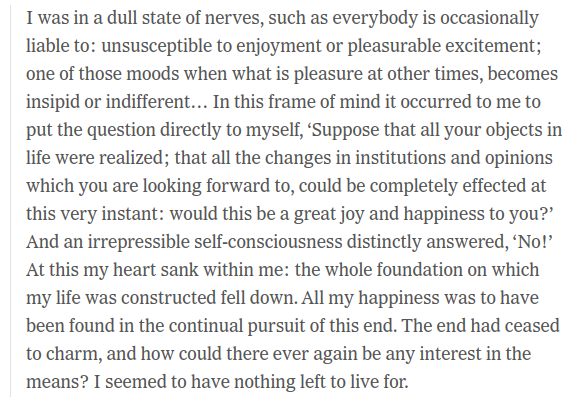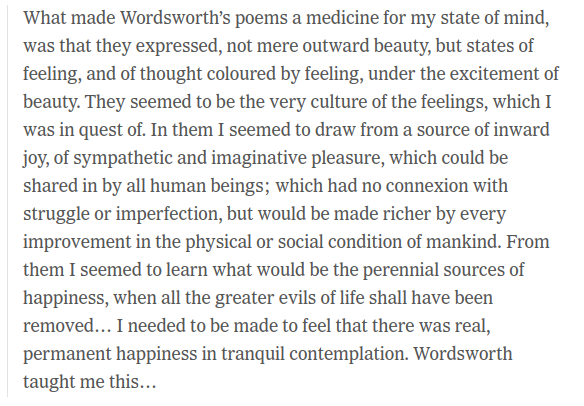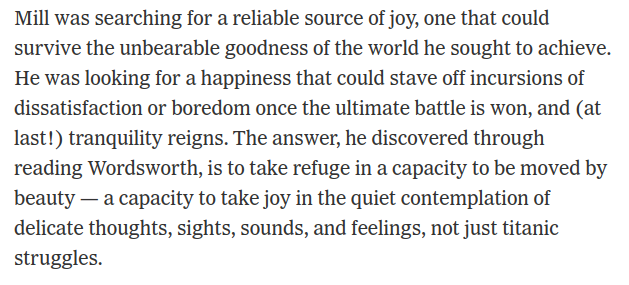In praise of idleness. https://www.newstatesman.com/2020/08/why-bertrand-russells-argument-idleness-more-relevant-ever">https://www.newstatesman.com/2020/08/w...
This reminded me of one of the famous burnout in the history of philosophy - that of John Stuart Mill, who, at the age of 20, suffered a depression just thinking: what if we achieve all our goals and find ourselves in a heavenly perfect world, could we still be happy?
Talking about this, Adam Etison writes:
Source: https://www.nytimes.com/2017/10/02/opinion/js-mill-happiness-anxiety.html">https://www.nytimes.com/2017/10/0...
Source: https://www.nytimes.com/2017/10/02/opinion/js-mill-happiness-anxiety.html">https://www.nytimes.com/2017/10/0...
I think what both Russel and Mill are pointing to here is the insight that the only sure and necessary foundation for happiness/flourishing is beauty - "the quiet contemplation of delicate thoughts, sights, sounds, and feelings".
[...]
[...]
[...] Sure, our work and our struggles can give us meaning and happiness. But ultimately all of this is contingent, not necessary. Why? Because all work and struggle is, by definition, only means to certain ends.
What happens when we have achieved those ends?
What happens when we have achieved those ends?
Could we still get enduring happiness when we got all that we struggled for? Almost certainly not. The common saying that it is the journey that is meaningful and not the destination itself recognizes this insight.
So what can be done to put the happiness on surer and more secure foundations? The answer that both Mill and Russell come up with is -- to develop our capacity to be able to find happiness in things that are intrinsically desirable (and not just as means to an end).
... "the quiet contemplation of delicate thoughts, sights, sounds, and feelings" as Etinson summarizes Mill& #39;s insight.
(I will play and friendship to the list too.)
/End
(I will play and friendship to the list too.)
/End
* I will add

 Read on Twitter
Read on Twitter




